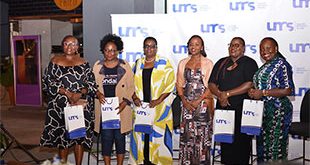
Apple farming is quickly taking shape in Kasese district. The district is largely known commercially for growing maize, cotton, coffee and vanilla.
However, the trend is changing especially in the mountainous areas with farmers shifting from cash crops to apple farming. Kasese has over 600 large scale apple farmers spread across Busongora North, Bukonzo East and West constituencies.
The chairperson of Kasese Apple Growers Organization-KAGO, John Kamadi says they have ventured into the plant to diversify their household incomes. He says the mountainous areas were found to have favourable weather conditions for apple growing.
He says in 2017, the National Agriculture Advisory Services-NAADs started training farmers on apple growing and gave them free seeds as a start-up.
Kamadi says there is a competitive ready local market, especially from supermarkets.
Simon Kabali, an apple farmer from Lungoma village in Kyarumba sub county was attracted to the business after the OWC training in 2017. The farmer planted 1,000 apple seeds, harvesting over 800 fruits in his first season with each going for 500 Shillings.
He expects to harvest over 2,000 fruits this season producing more returns compared to what he was making in a year from coffee production on the same piece of land.
However, the farmer decries the poor road network and high costs of manure.
Lungoma has no access road and the farmers have to carry their produce on the head to the low land areas.
Marie Kabugho, a member of Mubathi-Lingoma apple farm in Kyarumba says that the apples are an alternative to the declining coffee business. She says that for the three years she has spent in apple growing, she has been able to pay fees and take care of her five children.
She however wants NAADS to support her with more seedlings so that she can expand her farm.
Douglas Kasereka, another farmer from Kitholu sub county however says the fruits could have more of a mass-market appeal and also offer good returns but for the moment, that’s not viable. He says supermarkets grade the fruits depending on size with the biggest fruit bought at 500 Shillings. The farmer is also bothered by birds that are preying on his 1,000 tree garden.
Dennis Yiga, the Zonal Agriculture development officer for Rwebitaba zone-Rwenzori region says it makes sense that the most important commodities in the country including apples should become the target for a major programme of industrialization.
Grace Kazigati Fatima working with the NAADS secretariat says they have given out more than 400,000 apple seedlings to 6,500 farmers in Kasese alone.
*****
URN
 The Independent Uganda: You get the Truth we Pay the Price
The Independent Uganda: You get the Truth we Pay the Price


